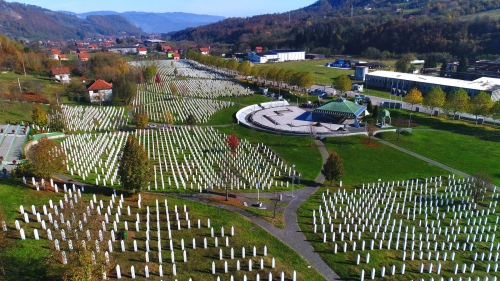Stop the New Carnage in Chechnya
As the eyes and ears of the international community continue being preoccupied with the developments in East Timor, another enormous tragedy has been unfolding in Chechnya over the past three weeks. Latest reports suggest that Russian forces are poised to finish their onslaught that claimed 100,000 lives in their 1994-96 wars on Chechnya.
A representative of Chechnya's president said in London on September 24 that in two weeks the indiscriminate Russian air and artillery strikes had killed 298 people and forced about 60,000 people to flee their homes. After two weeks of those low intensity attacks, the Russian warplanes have intensified their bombings on Chechnya's vital economic, industrial, and telecommunications infrastructure.
The neighboring Republic of Ingushetia has sealed its border with Chechnya to halt flood of terrified civilians fleeing the Russian bombing raids in Chechnya. The refugees have overwhelmed the Chechen government as they are trying to shelter them in tents in alongside the border with Ingushetia.
This humanitarian crisis is likely to go beyond remedy both in intensity and magnitude should a Russian ground invasion of Chechnya begin. The Russian defense minister said on September 26 that Russian ground forces are ready to launch a massive ground invasion quarantining Chechnya from all sides. According to BBC reports, some 200 Russian armored vehicles backed by helicopter gunships have advanced across Ingushetia to the Chechen border.
In the meantime, an unprecedented witchhunt for Chechen and other Caucasian Muslims is underway across Russia, following the recent terrorist bombings in Russian cities that killed 300 people. Criminal terror attacks are quite common in Russia. In the 19 major terrorist attacks that have rocked Russia since June 1996, the Russian authorities miserably failed to detect a single agent of those acts. From time to time, they vaguely blamed smugglers, religious fanatics, racists or Chechens for those terrorist acts.
Unfortunately for the Chechen Muslims, the recent major terrorist attacks happened at a time of military conflict between the Russian forces and some Muslim rebels who defied the continued Russian occupation of the Muslim regions of the Caucasus. The Russian authorities, who themselves are suspected of staging some terrorist acts to camouflage their rampant corruptions, now find it politically expedient to scapegoat the Chechens.
More unfortunately, the unfolding human tragedy of the Chechen people hasn't received any significant international attention. Like their bloodbath during the 1994-1996 war, their suffering will perhaps never ring an alarm bell like the one we heard from the Indonesian military's carnage of the people of East Timor. The United Nations is silent on the issue. And Muslim governments have taped their mouths, waiting to sing to the chorus of the international community led by the U.S.
While condemning the terrorist bombings in Russia, Muslim individuals and governments worldwide must ask the Russian government to stop persecuting the Caucasus Muslims based on stereotyping and suspicion. While sympathizing with the victims of terrorist acts, Muslims must speak out loud against the greater terror being inflicted upon the Caucasus Muslims by the mighty Russian armed forces. Three centuries of Russian persecution and killing of Caucasus Muslims have been more than enough. Muslim organizations worldwide should organize demonstrations and media events to bring the suffering of the Chechen people to the World's attention.
American Muslims should welcome the U.S. government's expression of concern at the humanitarian situation in the Caucasus region. But this is not enough. American Muslims must pressure the government to use its influence to have the Russians engage in a dialogue with the Chechen people, as President Aslam Maskhadov of Chechnya called for in the meantime. Through dialogue, Russia must agree to respect the wishes of the people of Caucasus just as it did to those of the tiny republics of Latvia and Estonia.
Mohammad A. Auwal is an assistant professor in the Department of Communication Studies at California State University, Los Angeles and is a regular columnist for iviews.com
Topics: Conflicts And War, Democratic Republic Of Timor-Liste, Russia
Views: 1144
Related Suggestions

















